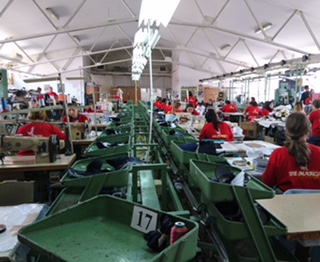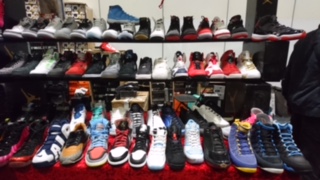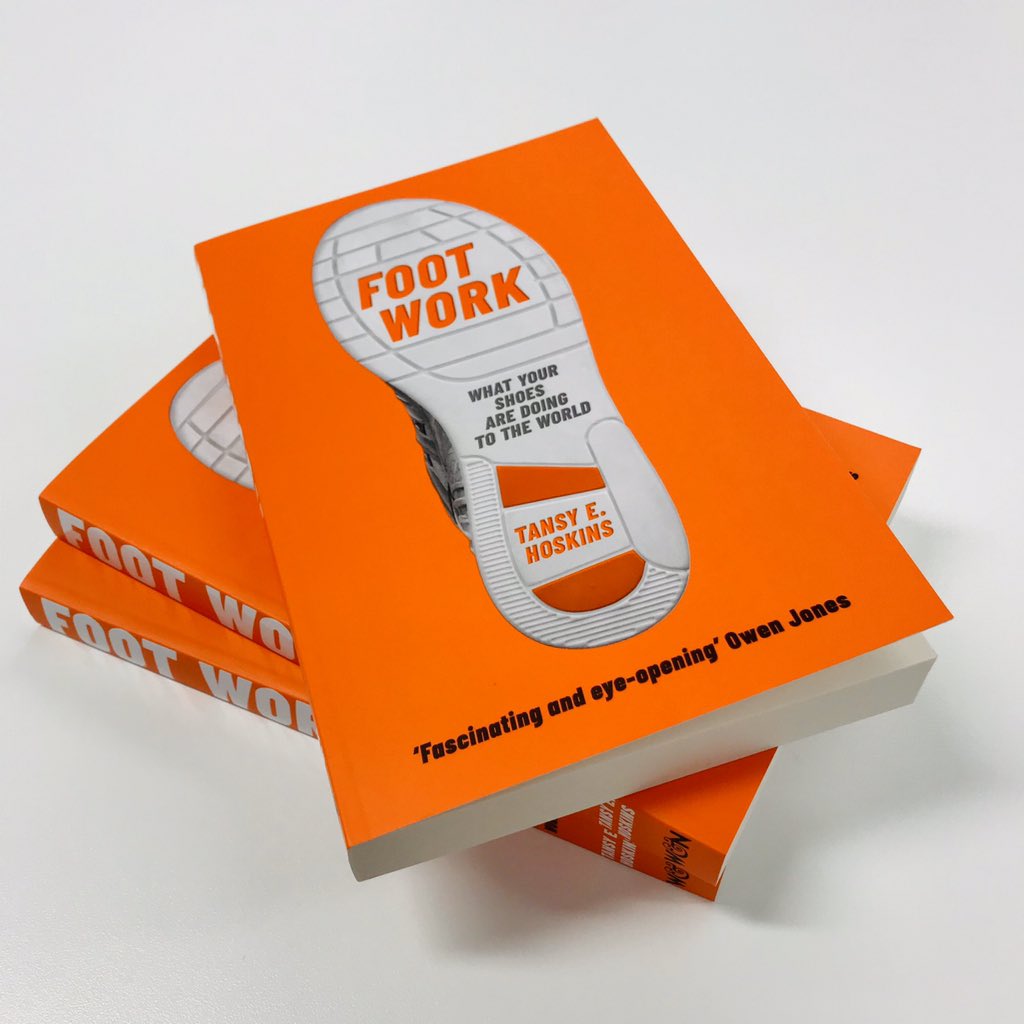While the fashion and clothing industry is in the spotlight for its exploitation of people and planet, this awareness about what we wear seems to stop at our ankles. But we need to talk about shoes because the footwear industry is a decade behind the rest of the fashion industry in terms of safety standards, wages and corporate transparency.
The job of modern-day shoe workers remains rife with noxious fumes, toxic chemicals and poverty wages. The impact of the shoes on our feet upon the biosphere, upon animals and the living world remains unethical and deeply unsustainable to the extent that 66.3 million pairs of shoes are now manufactured each day.
In the 1950’s footwear manufacture textbooks estimated that a young woman in paid employment could be expected to own six pairs of shoes: work shoes, dressy shoes, dancing shoes, sport shoes, winter boots, plus a pair sandals for the summer. Six pairs of shoes to keep feet safe and allow for basic social expectations. Fast forward to present day and the ‘average woman in Britain’ reportedly now owns twenty-four pairs, some of which she has never worn. Such statistics are highly inconclusive, along with the very concept of an ‘average woman’, but it is still the case that the majority of people in wealthier societies own far more shoes than they use, with the shoe collections of the rich and powerful running into the thousands.
This sharp rise in shoe ownership was propelled by a gigantic rise in production. In the twenty years between 1970 to 1990 there was a dramatic change in where shoes were made, the amount people were paid to make them and the conditions they were made in. European and American shoe corporations shifted production to the Global South where they could pay people lower wages and be less hampered by environmental laws.
This allowed shoe brands to stop running factories and concentrated on selling dreams instead. They created an obsession to match the technology, creating artificial demands for new fashions and making us want far more shoes that we could possibly ever need.
Shoe production today is based on a system of subcontracted factories. Tier One factories are big factories that contract directly with brands and retailers. These factories routinely subcontract work to Tier Two factories – smaller production units that do assembly work or provide specialised elements of production, for example embroidery or dyeing. Then even smaller Tier Three factories receive subcontracted work from the first two tiers.

But there is another level – a hidden tier which is a major pillar of the global economy and a central reason why shoes remain so cheap. This is the layer of basement workrooms.
The war in Syria saw millions of refugees flee into Turkey, destitute and needing to help make a living for their families, Syrian refugee children as young as six work in Turkey stitching shoes together. A Syrian child in the Turkish shoe sector will earn 150–200 Turkish lira (£25 –35) a month.
As well as the risk of developmental brain damage and lung disease from glue fumes, these children run a high risk of developing solvent addictions. They are exposed to sharp cutting tools, and the risk of fire from the flammable pots of thinner and glue they work with. These are dangerous conditions for adults, let alone six year-olds. The horrors faced by refugee children working in the shoe industry also include verbal abuse, beatings and sexual abuse. It is far easier for a boss to use violence on an unprotected child than an adult. Then there is the final injustice of these children producing shoes for export which will cross borders barred to refugees.
Turkey’s subcontracting system is the result of the business model followed by fashion brands, a demanding process that involves orders changing quickly, and huge pressure on factories to cut their costs. It is not easy to monitor supply chains but it is possible, and the downward pressure on price is a major culprit in why undeclared subcontracting takes place. Changing the shoe industry will mean tackling the root causes of these problems – it will mean brands putting an end to exploitative business models and in paying fair wages across their supply chains.
Tier Three also includes homeworkers in Pakistan. Single mother of four, Nagina works in her home in Lahore making embroidered uppers for women’s shoes. This is intricate work involving tiny stitches and gluing on beads with a glue gun – all of which makes her eyes hurt. An agent for a factory near to her home delivers the work to her and collects it once she has finished.
One of the biggest problems she faces is that work from the factory is not regular. Nagina describes how work can suddenly dry up for whole weeks at a time, leaving her struggling to pay her rent and expensive utility bills, and adjusting the rest of her family’s life to whatever money remains.
Nagina’s friend Razia Nisar is also a home-based shoe worker. She is adamant homeworkers are worse off than factory workers: ‘There is no time limit while working in our homes. Factory workers normally have to work for six to eight hours but there is no limit here. Sometimes we work late into the night, as late as 12 a.m. some days and this is all without a holiday.’

Factory owners save money by employing women like Nagina and Razia because they do not have to pay electricity bills, or for social security and medical allowances. Many home-based workers end up earning as little as 20–25 per cent of Pakistan’s minimum wage. A monthly salary of 3,000–4,000 rupees per month ($28–38) is a starvation wage that leaves nothing for savings or to cover medical emergencies. Homeworkers often end up asking for loans from relatives or friends, then struggle to repay the debt.
This question of fairness has been further highlighted by the corona virus. When Covid 19 came along, it disrupted supply chains and created a temporary off-button for consumerism. A long list of retailers including Nike, Clarks, and New Balance have shuttered their stores, other retailers including Primark have told suppliers to cancel orders. In amongst the chaos and misery, the impact of Covid 19 is being felt most by those at the lower end of supply chains. Retail workers across the UK now face an uncertain future, and factory workers and homeworkers who barely survive on the poverty line now face destitution.
It is now more important than ever to recognise the interconnected nature of our world and to ensure that everyone is treated fairly. There are ways that each of us can help bring about a fairer world:
Educate yourself on labour and environmental rights by reading books, attending talks, listening to podcasts and watching documentaries. We cannot change anything unless we work together, so connect with organised campaigns like Labour Behind the Label, TRAID, War On Want, Fashion Act Now plus many more. Be vocally critical of shoe brands – use your social media accounts to ask questions about supply chains, wages and workers’ rights. If you cannot find information about your shoes, ask for the relevant data. If you do not like how a brand is behaving, tell them.
It is vital to go beyond just thinking about your own shopping choices, but what about the next time you need to buy a pair of shoes? Research small shoe brands that offer alternatives to leather, environmental destruction and sweatshop labour. You can also decide to get all your shoes repaired, or dive into the world of upcycling. You could also hunt down pre-loved pairs in markets, charity shops and online forums, or organise a swap-shop or arrange loans among friends.
If you are interested in knowing more or would like to buy a copy of Tansy’s book, click on the link below.


Tansy is one of our foremost investigative journalists – and a good writer to boot (no pun on her latest book title.